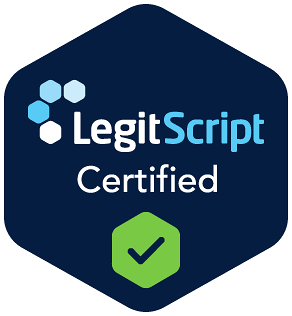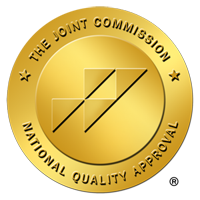If you’ve experienced trauma and now struggle with your memory, you are not alone. Yes, PTSD (Post-Traumatic Stress Disorder) can directly affect your memory, causing a range of issues from memory loss and “brain fog” to having intensely vivid, intrusive memories of the traumatic event.
This happens because intense trauma can alter brain function, particularly in areas responsible for memory processing and emotional regulation, like the hippocampus and amygdala. Understanding this connection is a key part of healing from trauma.
How Trauma and PTSD Impact Memory
The cognitive effects of PTSD are a real and often distressing part of the condition. At our trauma treatment center in Colorado, we help clients understand and manage these symptoms. PTSD can affect memory in several ways:
- Amnesia for the Event: You may have gaps in your memory for all or parts of the traumatic experience.
- Intrusive Memories: You might experience powerful, unwanted flashbacks that feel as if the trauma is happening all over again.
- Short-Term Memory Problems: You may find it difficult to remember recent conversations, appointments, or tasks, which is often described as “brain fog.”
- Difficulty Concentrating: Trouble focusing can make it hard to form new memories.
Healing from PTSD involves therapies that help the brain process traumatic memories and reduce their emotional charge. Evidence-based treatments like Eye Movement Desensitization and Reprocessing (EMDR) and trauma-focused cognitive behavioral therapy can significantly improve memory function and reduce PTSD symptoms.
Can PTSD Affect Memory?
The kitchen is quiet until the smoke alarm chirps. You’ve only looked away for a second—checking a message, replaying a hard conversation—when the toast goes from golden to scorched. Later, you’ll wonder: How did I forget something that simple? And why do I remember the worst day of my life in shards? If you’ve lived through trauma, this mix—hyper vivid fragments and slippery everyday details—may feel achingly familiar.
The short answer is yes. PTSD can interfere with memory and attention, sometimes in ways that feel destabilizing. Some people can’t hang on to daily details; others recall trauma in jagged flashes with missing pieces.
How PTSD Changes Memory (And Why It Makes Sense)
What looks like “bad memory” is often the brain doing its job under stress.
- Intrusion steals attention. When your mind is hijacked by intrusive memories or flashbacks, there’s less bandwidth left for working memory—the mental scratchpad we use to hold a task in mind.
- Stress encodes differently. Under threat, the brain can form strong but fragmented memories of a stressful event. The result can feel vivid but incomplete—like snapshots without a full album.
- Context binding gets wobbly. The hippocampus helps glue when/where to what. In PTSD, research suggests this circuit can function differently, making it harder to place a memory in context and time linking context to events.
- Sleep matters more than we think. Nightmares and short, restless nights are common in PTSD and can undermine learning and memory, magnifying daytime lapses.
Memory gaps aren’t proof that you’re broken. They’re signs your brain prioritized survival over filing. Think of it like a smoke alarm that keeps blaring even when the toast is just smoky. The alarm works; it just needs recalibration.
What Kinds of Memory Are Most Affected?
- Working memory and focus. Many people with PTSD notice trouble concentrating—especially when symptoms spike and attention keeps getting pulled off-task.
- Autobiographical detail. Stories can go broad: fewer specifics, more generalities. Research links PTSD with more overgeneral and fewer specific memories.
- The trauma itself. It’s common to recall sensory fragments (sirens, smells) while other parts feel blank or out of sequence. Intrusion can be vivid even as the overall narrative feels incomplete—another version of intrusive memories pulling attention.
When it may not be PTSD
- Normal aging vs. dementia. With aging, some forgetfulness is expected; dementia causes a progressive decline that disrupts daily life. The National Institute on Aging clarifies what’s typical and what’s not in memory and aging.
- Other conditions. Depression, anxiety, ADHD, head injury, thyroid problems, and substance use can all affect recall and attention. If medication is part of the picture, remember that some sedatives can cloud memory—and reputable guidelines advise not prescribing benzodiazepines for PTSD.
Treatment and Recovery
Here’s the hopeful part: treating PTSD often steadies memory.
- Trauma‑focused therapies help. Major guidelines recommend approaches like trauma‑focused CBT, EMDR, and CPT because they target avoidance and meaning-making at the root—see the NICE NG116 recommendations. As symptoms settle, focus tends to return and the story of what happened gets clearer.
- Sleep repair pays dividends. Because sleep consolidates memory, improving it matters. VA guidance notes that CBT‑I and nightmare‑focused care can improve sleep and memory in PTSD.
Why this works: When intrusion quiets and your nervous system spends less time on high alert, attention reallocates to the present. The smoke alarm isn’t snipped; it’s reset.
Everyday Strategies that Support Memory
You don’t need a 20‑point plan. A few small experiments—repeated—can move the needle.
- Name → Normalize → Next step. Name: “I’m losing the thread.” Normalize: “My brain is scanning for danger; it’s not a character flaw.” Next step: “I’m going to write this down and take two slow breaths.”
- If/then plan (10 seconds). If I notice my mind go blank in a meeting, then I’ll ask, “Could you repeat the last point while I jot it down?” (Simple, present‑tense, no apology.)
- Two‑sense grounding (30 seconds). Name one thing you can see and one thing you can feel (chair under thighs, feet on floor). Repeat once. This nudges attention back to the here‑and‑now, buying your working memory a little space.
- Externalize the load. Use calendars, sticky notes, and phone reminders. Think of these as prosthetics for attention, not proof of weakness. They keep tasks out of your head and in front of your eyes.
- Sleep as treatment, not a luxury. If insomnia’s in the mix, ask about CBT‑I (a structured approach that retrains sleep). Better sleep doesn’t just feel nicer; it stabilizes recall and mood, and supports learning and memory.
- A simple script for loved ones. “If I ask you to repeat yourself, I’m not tuning you out. My brain gets pulled by intrusive memories sometimes. Short, clear steps help me track with you.” You can even pre‑agree on a cue word—“Reset?”—to invite a fresh start without shame.
Getting Help
If memory gaps, fog, or intrusive fragments are affecting your daily life, you don’t have to manage them alone. At American Detox, we provide trauma‑informed care with integrated Dual Diagnosis, offered through a supportive continuum from Detox to Residential. Veterans and first responders can access specialized tracks designed around their culture and needs, with evidence‑based therapies and structured daily support.
If you’re in crisis or thinking of suicide, call or text 988 in the U.S. If you’re considering treatment, you can verify your insurance or contact us to talk through options and next steps.



